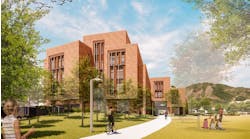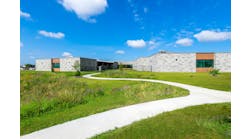Harvard University and the Massachusetts Institute of Technology have entered into an agreement with the city of Cambridge, Mass., to work together on sustainability-focused issues in the community.
The presidents of each of the universities and the mayor and city manager of Cambridge have signed a “Community Compact for a Sustainable Future” that describes how the organizations will work together on local sustainability issues.
“Climate change is a crisis that requires a comprehensive and collaborative response,” Cambridge Mayor Henrietta Davis says in a news release. “Cambridge is uniquely positioned to serve as a leader in this response: We have unmatched intellectual capital and a culture of innovation and commitment to the environment.”
The compact calls for the universities and the city—as well as any other organizations that choose to sign on to the agreement—“to harness the community’s capacities in research, innovation, entrepreneurship, social enterprise and governance to strive toward a more sustainable future.”
The agreement identifies numerous areas where collaboration among the organizations are considered critical: Building energy efficiency; climate change mitigation and preparedness planning; renewable energy systems; sustainable transportation; waste management; water management; urban natural resources; public information and education; and green tech incubation and promotion.
“We have much to gain from continuing to work together to confront climate change,” Harvard President Drew G. Faust say, “and I hope other leaders across the city are inspired to join us—and our partners in the private sector—in creating a healthier and more sustainable Cambridge.”
MIT and Harvard already work extensively with the city on many issues, the compact notes. Representatives from the universities serve on city committees and work with city staff to share sustainable design and construction strategies. The schools have partnered with Cambridge to secure grants for sustainable initiatives such as clean diesel retrofits and electric vehicle charging stations. The universities are major supporters of the city’s bike-share program and together with the city sponsor weekly farmers’ markets. Harvard and MIT help support area food shelters.
“Drawing on the scientific, technological and policy expertise of MIT and Harvard, together we can make a difference for our local community and perhaps extract lessons with global value as well," says MIT President L. Rafael Reif.

